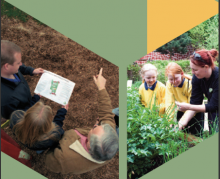News
Managing green spaces- seven ingredients for success

England’s parks and green spaces are being managed in a context which is changing fast and fundamentally. Councils are being given greater autonomy to determine the services they provide to their communities, but this autonomy comes with significantly reduced resources. So the challenge is to keep going with less money, while safeguarding the service and quality expected by local people.
This briefing brings together evidence to assist green space managers, corporate decision-makers and advisors in deciding on the future of services. Councils are testing different approaches to managing and financing public spaces. In many cases service delivery will be radically restructured as a result. The report sets out seven ‘ingredients for success’, describing the issues that matter but also, importantly, some that distract. Even when these ingredients feel familiar, the new challenge is using them to manage change. The briefing is relevant to all organisations managing green spaces, including housing associations and councils.
The ingredients arise from research for CABE between 2009 and 2010 by the New Local Government Network (NLGN). It examined how the structure and organisation of parks and green space services affect their performance.
The briefing also sets out the resources that green space managers can draw on to describe the critical services that green space provides to local communities. More information on the study is available at: http://webarchive.nationalarchives.gov.uk/20110118095356/http://www.cabe.org.uk/files/managing-green-spaces.pdf
NB CABE closed in early 2011 and their website is now archived on the National Archive at: http://webarchive.nationalarchives.gov.uk/20110118095356/http://www.cabe.org.uk/home
You may have found us by using the following keywords: Our Climate, Climate Change Partnership, Climate Change, Regional, Adaptation Sub-Group, Adaptation, Local Authorities, Strategy and Monitoring, Built Environment, Transport, Health Services, Business, Land Management, Citizen Engagement, Energy, Waste, Water, Carbon, Flood risk, Mitigation, Leadership, Low Carbon Products, Low Carbon Services, Zero Carbon, Integrated Regional Strategy, Yorkshire and Humber Strategy, Climate Change Act, Regional Adaptation Study, Climate Change Plan for Yorkshire and Humber, Climate UK, Regional Coordinator, Low Carbon Economy, Bio-mass, Carbon Capture, Microgeneration, Local Area Climate Change Network, YoHr Space, Climate Change Board, Impacts, Vulnerability, Opportunities, CO2, NI188, NI186, NI185, NI187, Temperature, Rainfall, Extreme weather






